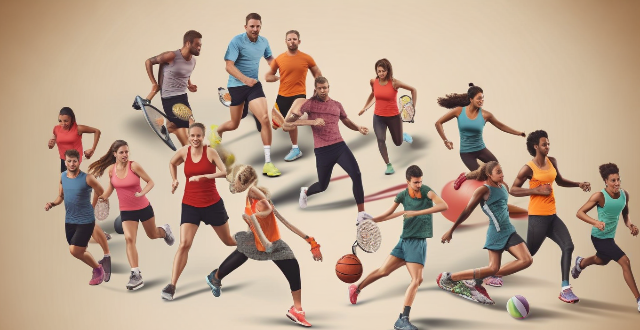Participating in sports activities can help reduce loneliness in elderly people by providing opportunities for social interaction, promoting psychological wellbeing, and offering a sense of purpose and accomplishment. Encouraging elderly individuals to engage in appropriate sports activities can be an effective way to address loneliness and improve their overall quality of life.

Can Participating in Sports Activities Help Reduce Loneliness in Elderly People?
Introduction
Loneliness is a common issue among elderly people, and it can have negative effects on their physical and mental health. In this context, it is important to explore whether participating in sports activities can help reduce loneliness in the elderly population.
Benefits of Sports Activities for Elderly People
Physical Health Benefits
- Improved Mobility: Sports activities can help improve mobility and flexibility, which is especially beneficial for elderly people who may experience joint pain or stiffness.
- Strengthened Muscles: Engaging in regular physical activity can help strengthen muscles, reducing the risk of falls and injuries.
- Enhanced Cardiovascular Health: Sports activities can also improve cardiovascular health by increasing heart rate and circulation.
Mental Health Benefits
- Reduced Stress and Anxiety: Participating in sports activities can help reduce stress and anxiety levels, leading to improved mental wellbeing.
- Increased Self-Esteem: Achieving goals and progressing in sports activities can boost self-esteem and confidence.
- Improved Cognitive Function: Research suggests that regular physical activity can improve cognitive function in elderly people, including memory and attention span.
Impact on Loneliness
Social Interaction
- Opportunities for Socialization: Sports activities provide opportunities for social interaction with peers, coaches, and trainers. This can help elderly people feel less isolated and more connected to their community.
- Group Activities: Many sports activities involve group participation, such as team sports or group fitness classes. These activities promote camaraderie and friendship among participants.
- Shared Interests: Participating in sports activities allows elderly people to connect with others who share similar interests, fostering a sense of belonging and companionship.
Psychological Impact
- Sense of Purpose: Engaging in sports activities can give elderly people a sense of purpose and accomplishment, reducing feelings of aimlessness and isolation.
- Distraction from Loneliness: Sports activities provide a distraction from feelings of loneliness by focusing on physical movement and personal achievements.
- Positive Emotional State: Regular participation in sports activities can lead to a more positive emotional state overall, reducing the impact of loneliness on mental health.
Conclusion
Participating in sports activities can indeed help reduce loneliness in elderly people by providing opportunities for social interaction, promoting psychological wellbeing, and offering a sense of purpose and accomplishment. Encouraging elderly individuals to engage in appropriate sports activities can be an effective way to address loneliness and improve their overall quality of life.